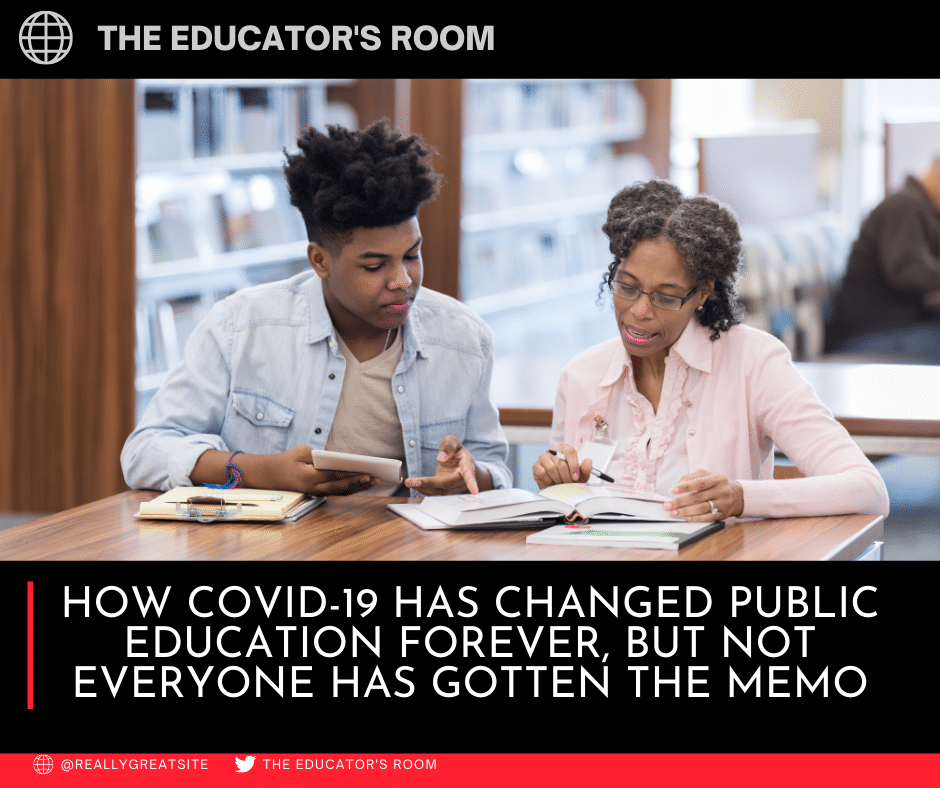There was no way to know precisely how the world would change when the novel virus Covid-19 began to take hold globally. Economies were shut down, many people lost their jobs, people got sick, people died, national lockdowns went into effect, and schools closed three months early in March 2020.
Common Core is no Longer Useful
When schools opened again for the 2020-2021 school year, the entire public education landscape looked different. Public school education has always varied in the states, with each state writing or adopting its grade-level standards. In 2009, however, Common Core Standards were written. Education policy officials have made efforts to mandate all states in the U.S. to adopt these standards and make the education system in the U.S. more uniform. The question educators and policymakers face today is how can we make common core work for students who are not attending school in the same way?
Common Core Standards cannot be useful when so many students are going to school differently. Many schools are entirely virtual, hybrid, or fully in person. This means that almost every student in every state will have a unique schooling experience. How can Common Core meet every need?
More than ever, we must rely on educators’ resourcefulness and creativity to know their learners and create engaging and rigorous lessons that challenge every student. Now that so many students in America are attending classes differently, we must trust our educators to meet the students’ social, emotional, and intellectual needs and prepare them for success in this new age of education.
It is Time to Challenge State-Mandated Tests
State testing has been mandated in all 50 states in the U.S. since 2002. Testing has been used to determine the effectiveness of schools, curriculum, and educators, and the weight has been placed heavily on the shoulders of classroom teachers to teach students to test well. This has built a culture of “teaching to a test,” which has changed the curriculum, creating resentment and bitterness in classroom teachers for decades.
There has been a significant crisis in education for decades, but this crisis has reached its boiling point since the lockdown began. Many states in the U.S. canceled their yearly testing, leaving holes in the data administrators and educational boards hold in such high regard. Suddenly, testing and data collection seemed to take a back seat to our students’ health and safety.
[bctt tweet=”How do we determine the effectiveness of teachers now? Perhaps we can evaluate an educator’s success based on each student’s growth and development as observed by the teacher and administrators first-hand.” username=””]
How do we determine a student’s readiness for the next grade? Perhaps we go back to grades, teacher observations, and classroom performance as a standard for determining a student’s readiness to progress to the next grade.
Despite the changes in teaching in a global pandemic, policymakers and politicians ask teachers to prepare their students for the state-mandated tests. Students are asked to come to school prepared, work hard, and test as though they are not living in fear of a virus that is killing hundreds of thousands of people. Teachers are asked to make changes in their teaching methods that make teaching and learning safer for students and staff, but the state-mandated tests have not changed, and they will still be administered in the spring.
While We are at it- Challenge Racism in American Education Once and For All
While we are challenging the status quo, let us not forget to challenge racism and white supremacy in education once and for all. It is time to stop whitewashing education. Stop elevating white voices and start teaching real, uncut history.
Challenge Patriotic Education
President Trump enacted an executive order just before the presidential election, demanding that schools focus on a “Patriotic Education.” Patriotic Education is a form of political education that includes a curriculum that teaches American children to love America. What is so dangerous about this form of education? The history taught in this curriculum will omit or downplay much of American history, such as slavery, separatism, and the treatment of indigenous peoples by the American government.
It is time to teach an unbiased history in our schools. Rather than teaching only about the white American experiences that advanced our country, we must also include in-depth discussions about the many ways our government and leaders have failed the people who live in our nation. Why is it important to discuss these adverse historical events? There is an old saying from Winston Churchill, “Those who fail to learn from history are condemned to repeat it.” Rather than teaching our children to be blindly proud of their nation, we must teach them to challenge injustice.
We Need More BIPOC Educators
Why are most teachers white? Educators are overwhelmingly white because the curriculum has been designed to make white people feel comfortable. We still teach American children that Christopher Colombus discovered America despite the continent being occupied by people native to this land for over 15,000 years. Many schools still teach American children that Martin Luther King Jr. was a peaceful Civil Rights hero while Malcolm X and the Black Panther Party are glossed over and referred to as “radicals.” In an overwhelming attempt to make history classes a safe space for white children and teachers, white voices and white historians write our curriculum. American history is framed from a white viewpoint written to enhance white voices.
It is not enough to have white educators who read BIPOC stories in February. It is not enough to read the same tired stories of BIPOC who were successful in sports or entertainment. It is time to read stories of successful inventors, politicians, civil rights leaders, and philanthropists. It is time to credit BIPOC for their contributions to our nation, not just during Black History Month.
We must hire more BIPOC educators, and we must retain those educators year after year. While there is no shortage of BIPOC entering the profession, the problem has been retaining these educators. BIPOC educators have reported experiencing microaggressions daily from their white colleagues. Many BIPOC educators have credited racism and inequity of treatment of students and educators of color as reasons for leaving the profession. White allies must speak up not just when BIPOC are present but also in white-only rooms when they hear these microaggressions and challenge racism every day.
Include BIPOC voices in the curriculum. Include BIPOC experiences that challenge white supremacy and do not be afraid to make white people uncomfortable.
Include Anti-Racism in Professional Development
It is not enough for white educators to claim to be “colorblind.” Being “colorblind” is harmful and dismissive of the experiences, culture, and identity of BIPOC in our nation’s history and today. Instead, we need to challenge white supremacy in education, challenge white supremacy in our curriculum, and demand equity on all levels. Anti-Racism education should be included in educator preparation programs and part of established educators’ yearly professional development.
Conclusion
Ultimately, it has become clear that education has changed forever. However, not everyone in education has gotten the memo. It is time to put BIPOC teachers at the table and bring them into the discussion. Changes are coming, and it is time that all teachers are heard.

References
Common Core State Standards Initiative. (2009). Retrieved December 24, 2020, from http://www.corestandards.org/
No Child Left Behind. (n.d.). Retrieved December 24, 2020, from https://www.k12.wa.us/policy-funding/grants-grant-management/every-student-succeeds-act-essa-implementation/elementary-and-secondary-education-act-esea/no-child-left-behind-act-2001





